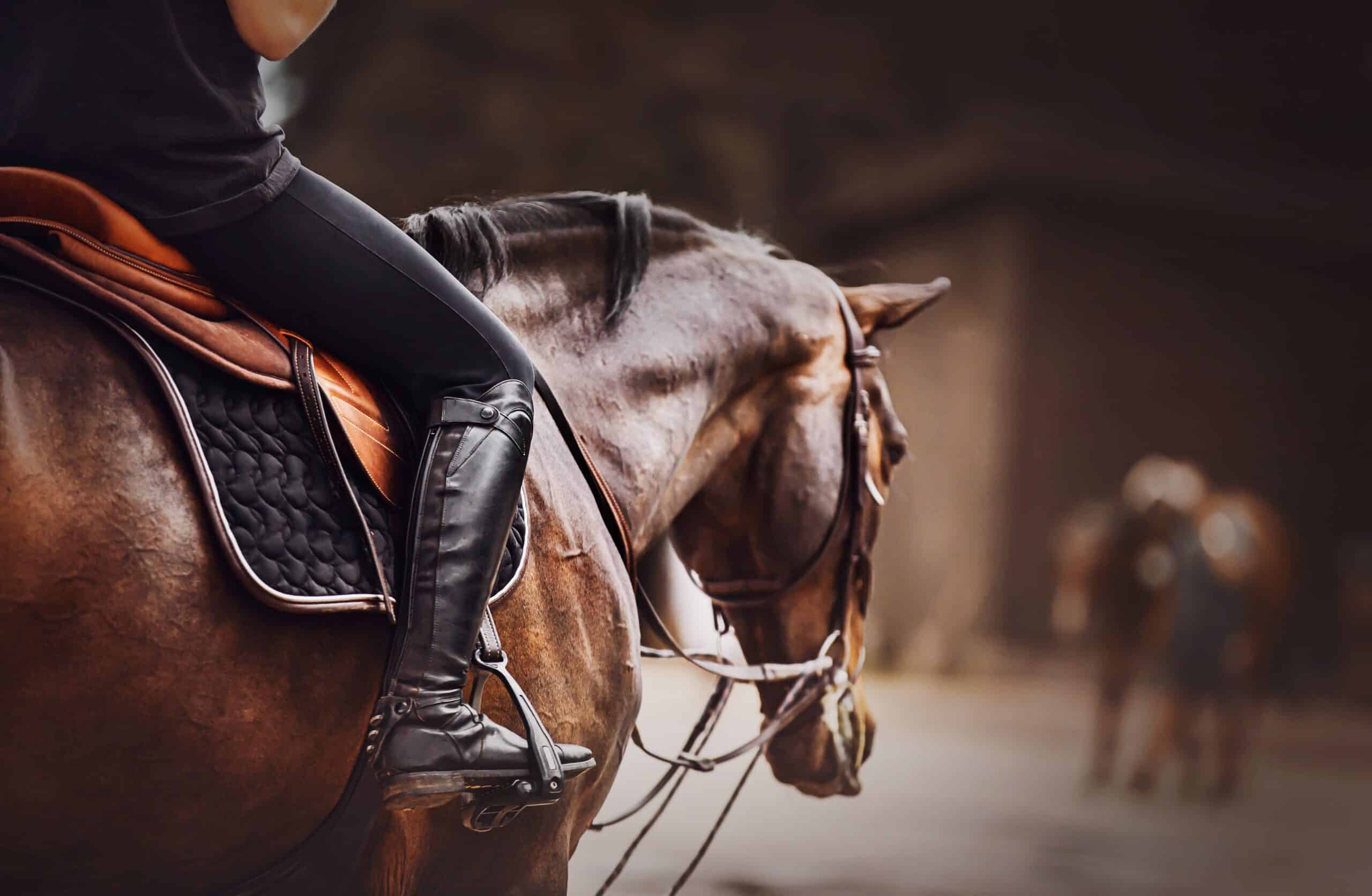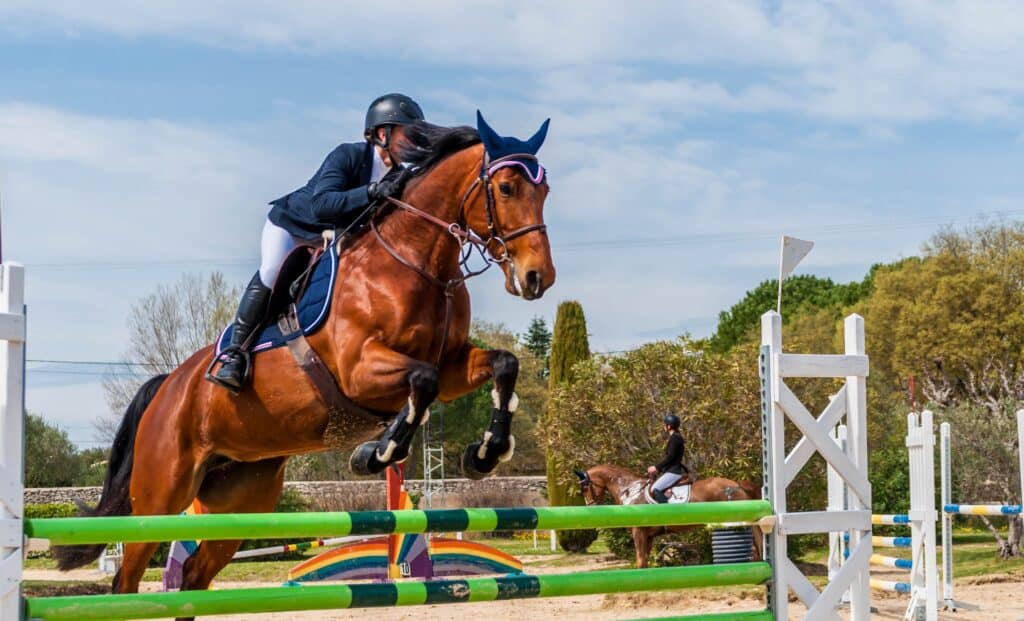Whether you’re a professional rider or an ambitious amateur, buying a show jumping horse is a decision that requires expertise, foresight, and financial planning. The market is vast, price ranges vary greatly, and not every horse is suited to a buyer’s specific needs. A well-thought-out purchase is crucial to achieving sporting success while avoiding costly mistakes. This article provides a detailed guide on what truly matters when investing in a high-quality show jumping horse.
Why Buying a Horse Is More Than an Emotional Decision
Purchasing a top-level sport horse is a complex process. The market is influenced by numerous factors, including talent, training, health, and genetics. Many buyers let emotions guide their decisions, whether they fall in love with a horse’s movement or take recommendations from friends in the equestrian community.
However, emotional decisions can be expensive—especially in the high-end segment. Beyond the purchase price, ongoing costs for maintenance, training, and veterinary care can add up. Buyers who fail to plan financially risk making a purchase that does not meet their long-term goals. That’s why it’s crucial to take a structured approach and carefully evaluate all aspects before buying a horse. Find more information at: https://www.jw-horses.com/en/show-jumping-horses-for-sale
-
Define Your Goals Clearly
Before looking at potential horses, every buyer should ask themselves: What exactly do I expect from my future horse? The answer to this question will shape the selection criteria.
Possible goals include:
- Success in national or international competitions: In this case, factors like athletic ability, pedigree, and prior experience are key.
- Developing a talented young horse: Investing in a young horse can pay off in the long run but requires patience and professional training.
- A safe and reliable horse for an ambitious amateur: Here, temperament and rideability are just as important as athletic ability.
Defining these expectations early on allows buyers to focus on the right horses and avoid distractions from irrelevant details.
-
The Health Check: Why a Pre-Purchase Exam Is Essential
A horse that appears flawless may still have underlying health issues that become evident only after purchase. These may include chronic lameness, joint problems, or metabolic disorders.
That’s why a comprehensive pre-purchase examination (PPE) by an independent veterinarian is a must. The examination should include:
- General clinical assessment: Checking the heart, lungs, eyes, and overall health.
- Orthopedic evaluation: Examining limbs, tendons, and joints through palpation, flexion tests, and movement analysis.
- X-ray diagnostics: Assessing bone structure and identifying potential abnormalities.
- Blood tests: Screening for signs of inflammation or prohibited substances.
Many buyers get distracted by a horse’s aesthetic appeal or charisma. However, long-term success depends primarily on a sound, healthy horse. A reputable seller will never refuse a thorough veterinary examination.
-
Pedigree and Training – Two Pillars of Value Assessment
A horse’s pedigree can be a strong indicator of its potential for success in show jumping. Many of the world’s best show jumpers come from bloodlines that have been selectively bred for generations for power, agility, and temperament.
However, genetics alone do not guarantee success. Training is just as crucial. Key aspects include:
- Basic training: A well-started horse with solid fundamentals in jumping has a much greater chance of success.
- Competition experience: A horse that has already proven its ability under pressure in competitions is a safer investment.
- Temperament and trainability: Even the best-bred horse will struggle to succeed if it is difficult to train or overly nervous.
Buyers must weigh their options: Do they invest in a fully trained, more expensive horse, or do they take a risk on a young talent with uncertain development?
-
Understanding Market Prices
The price range for high-quality show jumping horses varies significantly based on several factors. In general, the more trained and successful the horse, the higher the price.
A rough price guide:
- Young prospects (2–4 years old, untrained or lightly started): $15,000–$50,000
- Well-trained competition horses (5–10 years old): $50,000–$200,000
- International top-level horses: $200,000 to well into the seven-figure range
A thorough price comparison helps buyers avoid overpaying or purchasing a seemingly cheap horse that could end up being costly in the long run.
-
Legal Protection: Don’t Underestimate the Sales Contract

Purchasing a horse should never be done on a handshake agreement. A detailed sales contract is crucial to avoid disputes later on.
The contract should include:
- Full identification of the horse (name, age, pedigree, microchip number)
- Health status based on the pre-purchase exam
- Payment terms
- Any warranties or return conditions
Especially when buying from abroad, different legal regulations may apply, so it’s wise to consult an equine lawyer.
-
Ongoing Costs Should Not Be Overlooked
Beyond the purchase price, ongoing costs can be significant. A rough estimate:
- Board & feed: $500–$1,500 per month
- Farrier: $150–$300 every six to eight weeks
- Veterinary care: $1,000–$2,000 per year (not including emergencies)
- Competition & training expenses: Highly variable
Failing to account for these costs can lead to financial strain and limit the ability to provide the necessary care and training.
-
Patience Pays Off: The Right Buying Strategy
Buying a horse should never be a rushed decision. Successful buyers take the time to:
✅ Observe the market and compare multiple horses
✅ Try the horse under various conditions
✅ Seek advice from experienced trainers or veterinarians
A well-thought-out decision reduces risks and ensures long-term satisfaction.
A Smart Horse Purchase Combines Passion with Strategy
Buying a high-quality show jumping horse is a long-term investment. Those who approach the process with careful planning, seek expert advice, and conduct a thorough pre-purchase examination set the foundation for a successful and fulfilling partnership—both in sport and beyond.
photo credit: Bernard GIRARDIN, Valeri Vatel, doidam10/ Adobe Stock

